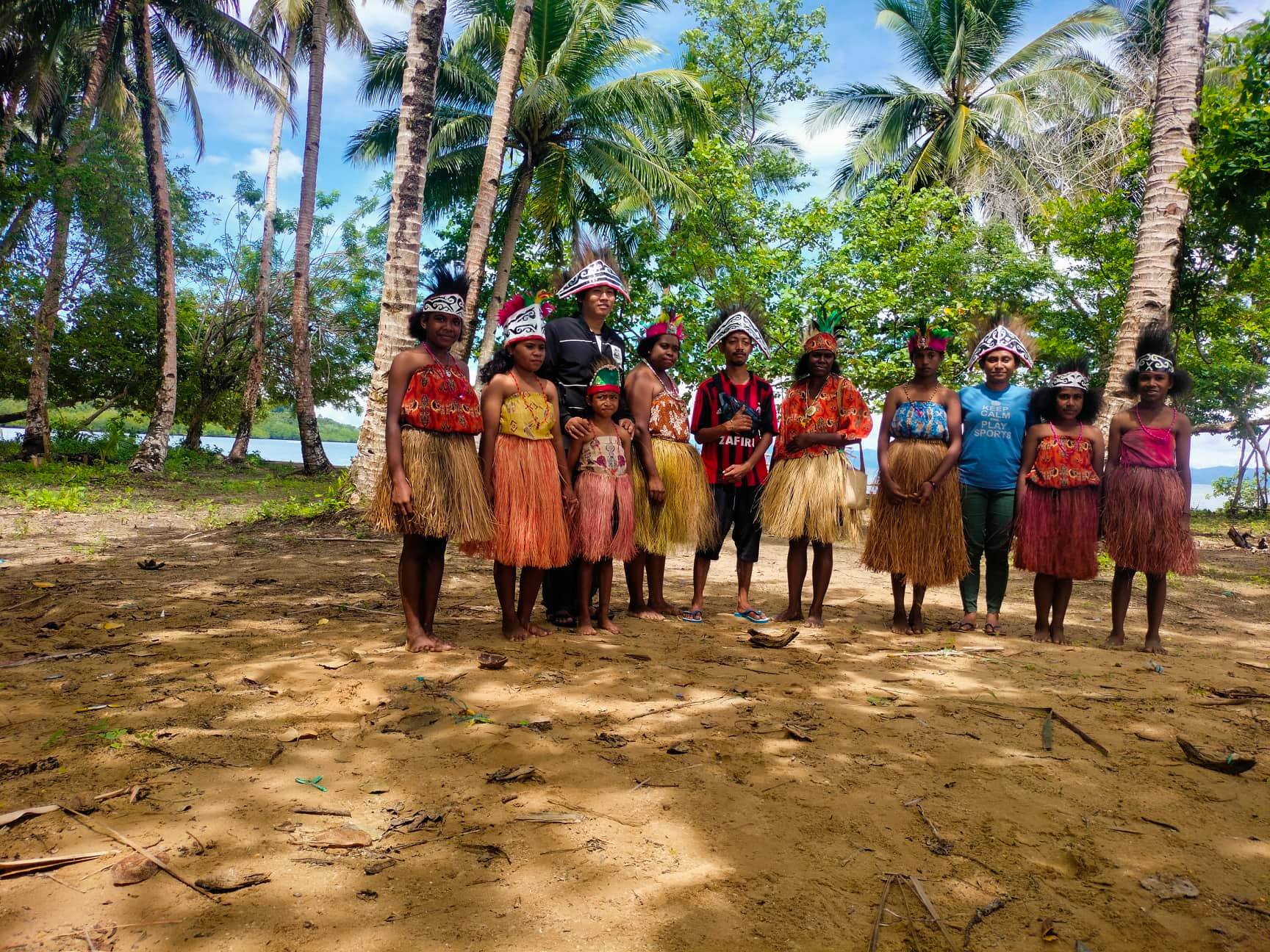Aisandami got 2021 Proklim Award for having the capacity to survive from climate crisis.

-
Date:
13 Jan 2023 -
Author:
KEHATI
Situated behind Duairi Bay, and about 50 kilometers from Wasior, Wondama Bay, West Papua, Aisandami village is a spot that still keeps its natural distinction and genuine culture. The 2021 Climate Village Program (Proklim) award was given to Aisandami village by the Ministry of Environment and Forests to honor the community’s ability in sustainably implementing climate change adaptation and mitigation measures.
Situated near the Cenderawasih Bay National Park’s Wasior Region II Sector Office (TNTC), Wondama Bay, on Tuesday, October 19, Deputy Regent Andarias Kayukatuy received the 2021 Proklim trophy and presented it to Ernawati Dewi Rumbekwan, Acting Head of Aisandami Village.
Tonci Somisa, the group leader, Agus Awi, the representative of the Aisandami Village community, and Cores Y. Makamur, the head of Section III Aisandami, all attended this event.
In 2021, there were 251 special participants for the major Proklim, according to the Deputy Regent, as quoted by Antara. Aisandami is one of the Maluku-Papua Proklim, a coastal typology Proklim with native people who are knowledgeable about the area.
“This is something we are all proud of. Yet in order to continue this success, we all must take responsibility. I hope that if we win the primary trophy now, Aisandami would eventually win the lasting trophy”, Deputy Regent, as cited by Antara, remarked.
The Ministry of Environment and Forestry manages Proklim to increase community and stakeholder participation in strengthening the adaptation capacity to the effects of climate change and reducing greenhouse gas (GHG) emissions.
Moreover, Proklim acknowledges the mitigation and adaptation efforts made in response to climate change and therefore can enhance local welfare in compliance with regional circumstances. The proklim stages cover mitigation adaptation action development, planning, implementation, and strengthening. The assessment includes aspects related to institutional actions, mitigation, and adaptation.
Activities that address vulnerabilities in the community, such as those to deal with the effects of climate change, are considered adaptation. One illustration is preparing for or responding to sea level rise. The village of Aisandami is located in a coastal region that is extremely vulnerable to sea level rise.
The Aisandami community planted mangroves at the end of 2020 to restore the role of preservation in coastal areas as a means of addressing this vulnerability. This planting is a part of the process of developing a natural coastal structure to prepare for the effects of climate change, which can increase the frequency of strong storms, high waves, and sea level rise, endangering the livelihoods of fishermen and the community.
The mitigation strategy involves lowering GHG emissions. Due to its coastal location and distance from the district’s temporary trash storage site in Wasior, Aisandami Village is more likely to accumulate waste, particularly inorganic waste. The Aisandami community has been turning garbage into crafts as a result since 2019. In order to increase food security and provide for family nutrition, garbage such as plastic cups, styrofoam, and unused cement bags are utilized as containers for growing vegetables and plants in the yard of the house.
An attempt is made to ensure that adaptation and mitigation efforts will be supported and continued through the institutional or group aspect. The Wadowun Beberin Ecotourism Group, a division of the TNTC Headquarters, is in charge of the group in Aisandami. This group has been actively promoting conservation-based tourism since 2018. Its existence is a driving force for activities and assistance that can guarantee climate change adaptation and mitigation activities. It also serves as a catalyst for gaining access to resources, finance, and technology.
Cendrawasih Ecotourism.
The Aisandami village ecotourism group worked to preserve cendrawasih (birds of paradise) as part of one of its initiatives. Kampung Aisandami was able to develop ecotourism with the help of the Blue Abadi Fund (BAF) by constructing cendrawasih observation points, mangrove hiking paths, and advertising the ecotourism package.
In an interview, Melania Hegemur, the treasurer of Aisandami Village Ecotourism, expressed her hope that by winning the 2021 Proklim prize, ecotourism would gain more recognition worldwide.
This ecotourism program includes a variety of societal segments in its development so that they are aware of the advantages that their children and grandchildren will also experience in the future. Several former cendrawasih hunters have recently changed careers to become tour guides, according to Melania.
Former cendrawasih hunters “are aware that there won’t be any visitors coming to the Aisandami ecotourism hamlet if birds from heaven continue to be hunted and become lost in nature,” said Melania.
Melania said, “Now the man who was a hunter has a homestay and benefits from ecotourism.
The ecotourism package is marketed as the “Aisandami Ecotour with Objects of Cendrawasih, Mangrove Trekking, and Diving,” according to Feronika Manohas, a WWF employee who works with the Aisandami community.
The cost of the ecotourism packages, which include the Getting to Know Nature, Getting to Know Culture, and Getting to Know the Surrounding Environment packages, ranges from IDR 600,000 to IDR 800,000.
“The Get to Know Nature package, which includes snorkeling, cendrawasih trekking, waterfall trekking, and mangrove trekking, is the most popular of the three. If the package is culturally aware, the fans are typically foreigners”, Feronika said.
